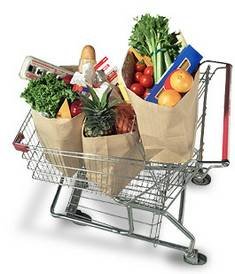Three Budget Friendly Tips for Your Next Grocery Shopping Trip
Style Magazine Newswire | 6/13/2017, 9:19 a.m.
Many of us are trying to eat cleaner these days. We look for non-GMO on labels. We pay attention to our foods’ country of origin. But some of these precautions can really add up at the cash register, without improving the nutritional value of what we’re eating. “It’s time to minimize some of the fear mongering,” comments registered dietitian nutritionist Felicia Stoler, who has traveled the world investigating food origins.
“For example, just because something is non-GMO doesn’t mean it’s healthy or not healthy. Some may still contain too much added sugar, salt or fillers. There’s a perceived ‘health halo’ around the terms non-GMO and organic. Most people don’t realize that there are only a handful of foods that could be GMO anyway: alfalfa, canola, corn (field and sweet), papaya, potatoes, soybeans, squash, and sugar beets.”
Before your next trip to the supermarket, Stoler advises you to consider these three tips:
Focus on the food’s nutrient composition, not the hype. “Be open to new ways to sneak important nutrients into your diet, but also know the facts. Non-GMO foods typically cost more, for example, but they may still be grown using pesticides and antibiotics. And adding fiber to a soft drink still won’t make it healthy for you, especially if it also contains artificial sweeteners.
“Another example: Some people are hyper-focused on palm oil, and would have you believe that it’s bad for you and the environment. You might be surprised to learn that livestock is the largest driver of deforestation in the world, while most of the palm oil in this country is sustainably produced in Malaysia. Plus, millions of people around the world depend on the vitamin A in palm oil to prevent childhood blindness. We’re so busy worrying about making orangutans extinct, when there are people who need this oil in order to see.
More relevant to Americans, it’s also a rich source of vitamin E tocotrienols which support heart and brain health. And heart health is a huge concern in this country! It’s also a nutritious replacement for trans fats. And I use Malaysian certified sustainable palm oil in my cooking because, unlike olive oil or specialty oils such as avocado oil, it’s flavor neutral.”
Stick with the basics. “Food that was good for you way back when, is still good for you now. Honey hasn’t really changed. Steel cut oats are solid nutritionally. Eggs are still in their original packaging! On the flip side, some trendy foods such as almond milk – which many people would have you believe is super healthy – are very highly processed. You can also get back to basics with your popcorn. It needs high heat to cook right. Look for a microwave popcorn that contains palm oil, because palm oil doesn’t burn easily so your popcorn will taste better.”
Listen to the science. “Before you spend your food budget on something new or pricey, examine where you’re getting your information. So much gets repeated on the internet that it’s tempting to just assume it’s correct. I’m trained to ask questions. Even if I hear a well-known expert say something with absolute confidence, I may call them out on it. If their science is flawed, it’s flawed.
“If you don’t have a science background, it’s still smart to do some investigating before you start following the next nutritional trend. A single study shouldn’t be taken at face value, no matter how many headlines it gets. Wait for multiple studies, completed by reputable universities, confirming the same outcomes. There’s no rush. Thankfully, we live in a country where nutritious fruits and vegetables are readily available.”
Stoler encourages everyone to learn how to read a food label. “The disconnect between label reading and healthy eating likely happens because people don't know how to interpret what they’re seeing,” she says. “While it may be tempting to choose foods based on seeing such phrases as “all natural” on the label, it’s far more important to pay attention to what’s really inside. Knowing the percent daily values, calorie counts and serving sizes will help you make the best food selections for yourself and your family.”
Biography: Dr. Felicia Stoler, DCN, MS, RDN, FACSM, FAND
Dr. Felicia D. Stoler, America’s Health & Wellness Expert ™, is a registered dietitian nutritionist, exercise physiologist and expert consultant in nutrition and healthful living. She was the host for TLC’s reality show, Honey We’re Killing the Kids. She is the author of Living Skinny in Fat Genes™: The Healthy Way to Lose Weight and Feel Great (Pegasus 2011). She specializes in integrating behavior modification to influence positive health outcomes.







